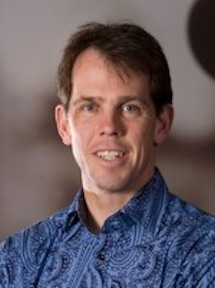By Xinchen Li
Thirty years after graduating from college, Jeffrey Thomas is using his skill as a business executive to help promote education in different realms.
Thomas graduated Phi Beta Kappa from Dartmouth College in 1989 with a Bachelor of Arts degree in economics and government. He worked as president and chief executive officer for nearly twenty years in multiple companies that aim to enhance education and international communication.
On February 28, Thomas was named Co-CEO of Scientific Leaning Corp., a publicly-traded company that develops and delivers language learning and reading enhancement products based on neuroscience research.
Educational business is not just about making profits, but also accomplishing a social mission and supplying a product that changes people’s lives, Thomas observed.
“In general, I believe the more educated people are, the better they can live their lives,” Thomas said. “They can improve their jobs, their day-to-day lives, and their relationships with others.”
Thomas served from 1996 to 2013 as the CEO and president of Ambassadors Group, Inc., a company that helps students from over 100 different countries travel and study abroad.
“The Ambassador Program is all about using travel as a vehicle for education,” Thomas said.
Most of the students who participate in the program are from junior high or high school. Students at that age are more open minded and more willing to engage with a foreign experience without preconceived ideas, Thomas noted.
For the program, students stay in a foreign country for approximately three weeks, Thomas said. They live with a host family and immerse themselves in the local life, experiencing everyday activities in a different way, such as buying groceries from a street vendor instead of from a grocery store. Students also learn about societal issues in different cultures by communicating with local government officials.
“[We make arrangements] with the goal that the students would see the world from that culture’s perspective,” Thomas said.
The program proves to be life-changing for many participants, Thomas added. Many decide to study abroad, get involved in foreign service, or pursue a career in international business after they come back from the exchange program, although they may have never considered these options before.
Thomas mentioned that the program helps American students develop an international perspective, an aspect that he observes is lacking in the American educational system.
“Americans need a lot of international experience and perspectives as the world becomes increasingly blended, mixed, and globalized,” he said.
The Ambassador Program aims to improve young people’s cultural intelligence, a parameter that evaluates an individual’s ability to navigate and understand other cultures and work with diverse groups of people, Thomas said.
His unique career path has enabled Thomas not only to involve young people in global conversations but also to assist other Americans in adapting to new professional demands.
Thomas is also executive chairman of Telemedia Trainco Holdings—a provider of training programs for large industrial companies around the world—and CEO of Jade Learning, LLC—a company that provides continuing education and training for working professionals.
Both companies aim to provide workers with the chance to further educate themselves and to learn what is changing about their jobs, how they can become better at these jobs, or how they can move to another level, Thomas noted.
“We live in a changing world,” Thomas said. “You have to change with it.”
Another essential component of continuing education is equipping workers with skills to collaborate with others, Thomas said.
“Business is a team sport, and the best team wins,” he added.
Continuing education is essential in our constantly changing world, Thomas mentioned. As technology makes many jobs obsolete and increases the need for workers in new areas and new jobs, reeducation and retraining will become more and more necessary in the next few years.
Now as Co-CEO of Scientific Learning, Thomas plans to help enhance the reading and learning skills of children with learning obstacles as well as foreign language learners. Fast ForWord, the primary product of Scientific Learning, is a language and reading intervention program focused on personalized practice to enhance a reader’s memory, attention, processing, and sequencing skills.
Thomas explained that he decided to engage with the company because the learning programs designed by Scientific Learning helped his own children overcome obstacles in self-expression and comprehension when they were toddlers.
Now expanding the services of the company to China, home to the largest and fastest growing foreign English-learning market in the world, Thomas hopes Scientific Learning’s software will help school-age children in China learn English more effectively and efficiently.
Thomas is impressed by how Phi Beta Kappa has grown and changed since he graduated from college, he said. His passion is also in perfect alliance with the ideals of Phi Beta Kappa, which encourage young people to improve the world with what they have learned.
“Phi Beta Kappa encourages students to pursue education and change things around themselves as they move through their lives,” Thomas said. “It was what I wanted to achieve with my career, too.”
“When you go through this world, you don’t want to just leave footprints saying that I did this and this in business,” Thomas said. “You want to say that you have made things better around you as you pass through.”
Xinchen Li is a junior at Duke University, majoring in political science and economics. She transferred to Duke from the University of California, Los Angeles, where she became a member of Phi Beta Kappa in 2017. UCLA is home to the Eta of California Chapter of Phi Beta Kappa. Duke is home to the Beta of North Carolina Chapter.




